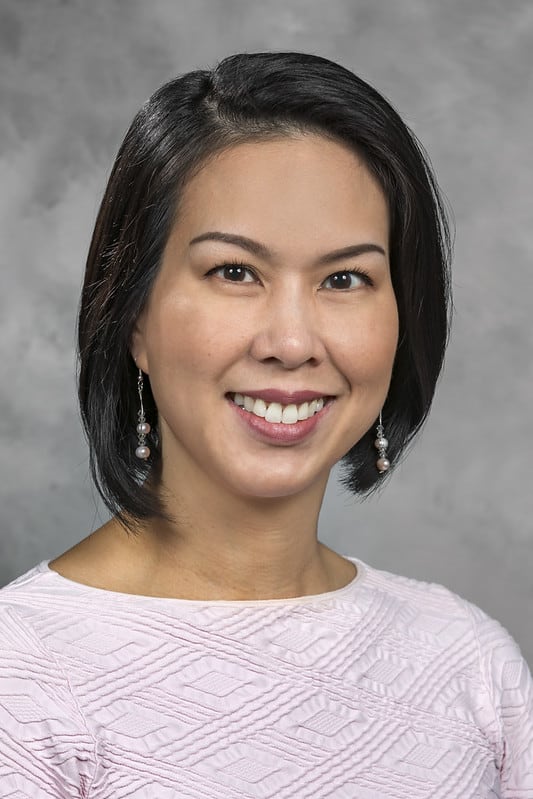New Treatment Gives Hope to Children with Peanut Allergy
Ian was watching a movie in class when it hit him out of nowhere.
“I started getting a really bad cough and heavy breathing,” he recalls. “I hived out. It was really scary.”
The then-16-year-old was having a severe allergic reaction, commonly known as anaphylaxis. He had touched the water bottle of a friend who had just eaten peanut butter.
Ian went home, took an antihistamine, and luckily, recovered. But his mom, Katie, says this could have killed him.
When he was a young boy, Ian was first diagnosed with food allergies to egg and peanut. He outgrew his egg allergy, but his peanut allergy remained.
Katie took Ian to be seen at Johns Hopkins All Children’s Food Allergy Clinic, where he became the first patient to undergo a new oral immunotherapy (OIT) called Palforzia, the first FDA-approved treatment for peanut allergy in children ages 4-17.
“It can save your life when you accidentally ingest a small amount of peanut. This gives families that peace of mind,” says Panida Sriaroon, M.D., medical director of the Food Allergy Clinic at Johns Hopkins All Children’s Hospital.
During the peanut OIT, patients are closely monitored in the clinic for reaction, and they will consume a precise, tiny amount of peanut powder, which is mixed into soft food. They take the same dosage daily at home for two weeks, then the dosage is increased in clinic, and taken daily at home for another two weeks. This buildup treatment is repeated until the patient is finally able to eat and tolerate Palforzia in the amount equal to one peanut daily, which takes about six months. Patients then continue to take this dosage daily, as maintenance treatment.
“Some families may want to extend the buildup treatment to have a higher level of protection, where the patient can eat three to eight peanuts a day,” says Sriaroon.
It is important to follow the daily regimen at home on a long-term basis, which is why before treatment, patients and families have an hour-long, in-depth consultation about what to expect and typical protocol for successful outcomes.
“Patients have to be dedicated with the support and buy-in from their family because consistency is key,” Sriaroon says.
“I really cannot stress how phenomenal the doctors and nurses were. They were so knowledgeable and hands-on in every single step of the process and protocol,” Katie says.
Ian is now attending Florida State University, the ninth person in their family to attend the college. He is on a Pre-Med track and working towards a major in Biology. Since being on his own in college, he’s had one exposure to peanuts after drinking a smoothie that inadvertently had peanut protein.
“Thankfully, the Palforzia protocol worked and he had absolutely no reaction,” says Katie. “In the past, that would have been a catastrophic situation, but this truly protected him. It’s been such a blessing.”
Now that his allergy seems under control, Ian hopes to turn his focus on his life goal of becoming a doctor.
Visit HopkinsAllChildrens.org/FoodAllergy to learn more about oral immunotherapy treatment.
 ABOUT PANIDA SRIAROON: Dr. Sriaroon is the medical director of the outpatient USF Allergy/Immunology clinic at Johns Hopkins All Children’s Hospital and the director of the USF Pediatric Allergy/Immunology fellowship training program. She is also the medical director of the Johns Hopkins All Children's Food Allergy Clinic. She is an associate professor of internal medicine and pediatrics at the University of South Florida (USF) Morsani College of Medicine.
ABOUT PANIDA SRIAROON: Dr. Sriaroon is the medical director of the outpatient USF Allergy/Immunology clinic at Johns Hopkins All Children’s Hospital and the director of the USF Pediatric Allergy/Immunology fellowship training program. She is also the medical director of the Johns Hopkins All Children's Food Allergy Clinic. She is an associate professor of internal medicine and pediatrics at the University of South Florida (USF) Morsani College of Medicine.
Dr. Sriaroon sees patients with various allergic and immunologic conditions and teaches medical students, residents and fellows. She has been invited to give presentations nationally and internationally. Her clinical and research interests include food allergy and primary antibody immunodeficiency. She has authored several peer-reviewed articles and has ongoing clinical trials on food allergy and immunoglobulin therapy. Currently, Dr. Sriaroon serves as USF site director of Food Allergy Research & Education (FARE) Clinical Network.
Dr. Sriaroon received her medical degree from the Chulalongkorn University in Thailand. She completed her pediatric residency at Mount Sinai Hospital in Chicago and a fellowship in allergy/immunology at USF. She joined the faculty at USF and the medical staff at Johns Hopkins All Children’s in 2009.
*Presented by Johns Hopkins All Children's Hospital | Originally published in May 2022

